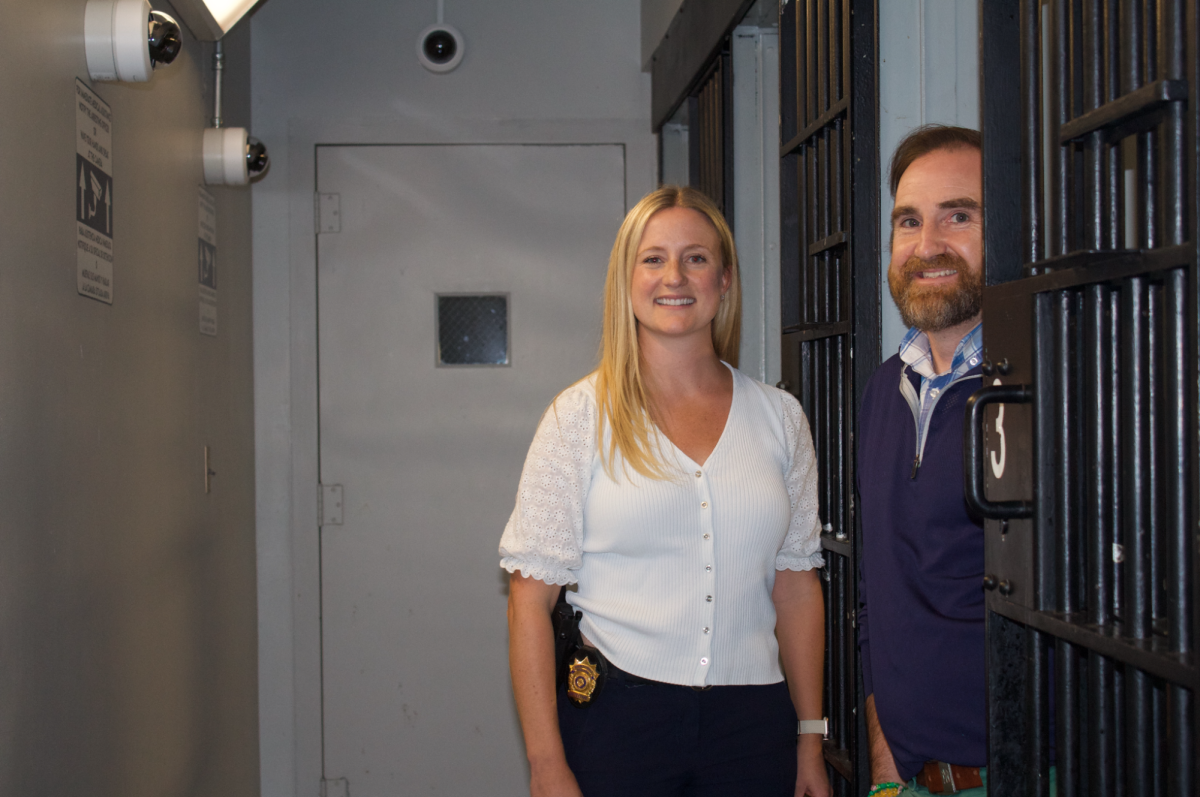A blaring siren creeps closer and closer as flashing red and blue lights appear in the corners of your eyes. You imagine what it will feel like to be in a cold, desolate jail cell with metal handcuffs cutting into your wrists. What are you going to tell your parents? What about college? What about the job you always dreamed of?
It is scary to face criminal charges as a teenager. However, in Westport, minors facing a first-offense, low-level crime are supported by the Westport Police Department’s innovative restorative justice program rather than handcuffed and placed in jail. This initiative does not apply to juvenile criminals, but rather to kids who have made easily avoidable mistakes, looking for a second chance.
In 2018, Westport Youth Services head Kevin Godburn and Westport Police Youth Detective Ashley Delvecchio spearheaded the Westport Junior Review Board (JRB) program, a restorative justice program that seeks to keep kids out of local courts. Currently, the program sees 12-15 children annually and creates a unique plan for each individual.
While programs like the JRB have existed nationally for decades, it was mandated in 2016 that every town in the state of Connecticut must integrate this type of program in their Police Departments, no matter how large or small. With a 30% uptick in non-violent juvenile crime rates nationally since COVID, diversion programs for youth offenders have become more essential than ever.
A 2019 study focused on the efficacy of these programs nationwide concluded that youth who had committed offenses and participated in a restorative justice conference were 44% less likely to recidivate than those who were prosecuted in court for the same offenses, according to the Annie E. Casey Foundation for Youth Support.
The restorative justice process begins with an intake meeting with the convicted individual at Westport Town Hall. Here, individuals will sign a contract, relinquishing their fifth and sixth amendment rights. Then, the individual along with their families, Godburn, Delvecchio, and a Westport Family Services social worker will collaborate to form a unique plan catered to each person’s misdemeanor, personal interests, and mental health needs.
“The JRB supported me while I was going through a frustrating experience by offering counseling, yoga, meditation and community leadership opportunities,” an anonymous male Staples student said.
Once the minor completes their individualized six-month program, their process culminates in a letter of reflection that is shared with their family, the police department, and any individuals or groups who aided them, and serves as the final step before the charge is entirely removed from the minor’s record.
Upon completion of the program and the submission of their letter of reflection, minors are encouraged to continue to generate a positive impact in the Westport community through their chosen avenue of continued community service. Additionally, they are tasked with being advocates for safety and responsibility among the youth of Westport.
“As long as they’re successful through the program,” Godburn said, “then it’s really a fresh start and original summons gets torn up…[but] this is not a get out of jail free card”
The WPD believes the program provides an opportunity for teenagers to learn from a first time offense without it ending their hopes for college or a career.
“Everyone makes mistakes,” Delveccio said. “Especially kids.”















































Shakur Abdullah • Oct 15, 2023 at 11:51 am
A good article, children shoild not be thrown away for their first time in trouble. RJ works for even more serious harms than the ones sele ted by this program and others l8je around the country. JLWOP,extreme sentences and the death penalty should never be sentencing oprions for children their first offense or not